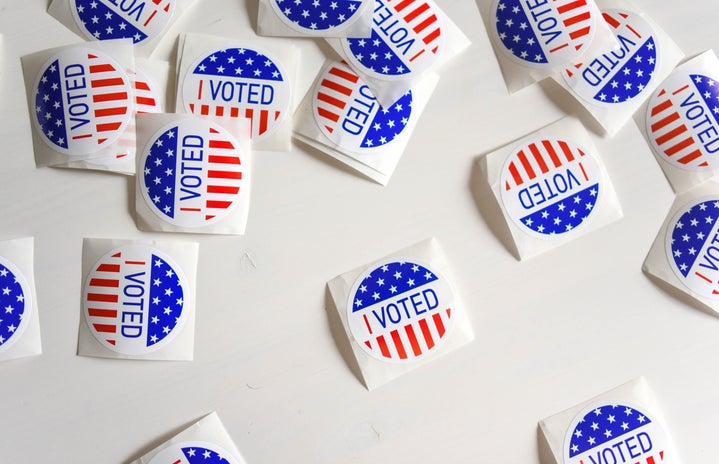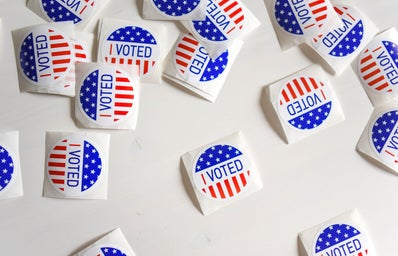As a student at Colby, it may be difficult to decide whether to cast an absentee vote in your home state, or to vote locally here in Waterville. Keep in mind that you have the option to choose! College students have dual residency and may register to vote with either of their addresses. In making this choice, here are some things to consider:
Representation in Electoral Votes
The disparity between state populations and number of electoral votes per state results in different states’ voters having varying levels of power in the electoral process. Using data from the United States Elections Project, Dale R. Duran in Whose votes count the least in the Electoral College? essentially divided the electoral votes of each state by the state’s total number of ballots cast in the 2016 election. A vote weight of 1 would indicate that the percentage of ballots cast in that state is equal to the state’s electoral vote share, meaning its people are properly represented. Maine is listed at number 16 on the list with a vote weight of 1.36. Unless you live in a state listed above Maine (Wyoming, DC, Vermont, Alaska, Hawaii, North Dakota, Wyoming, South Dakota, West Virginia, Delaware, New Mexico, Montana, Nebraska, Idaho, or New Hampshire), you should consider voting in Maine. This decision is especially important if you come from a very populous state. For example, I’m from California which has a calculated vote weight of .98, so I will be voting in Maine.
Maine’s Congressional District Method of Allocating Electoral Votes
In contrast to most states which allocate electoral votes using a winner-take-all structure, Maine is one of two states (the other being Nebraska), which uses the Congressional District Method of electoral vote allocation, allowing electoral votes to be split. Of Maine’s four electoral votes, one is given to the winner of the 1st Congressional District, one is given to the winner of the 2nd Congressional District, and two are given to the winner of the state popular vote. In fact, the electoral vote was split in the 2016 election, where Clinton won the 1st Congressional District and the state popular vote, and Trump won the 2nd Congressional District. Maine’s electoral vote allocation allows for greater representation of a diversity of opinions than most other states.
Importance of the Youth Vote
According to the 2020 Youth Electoral Significance Index (YESI), Maine is a state where the youth vote will have a strong impact on the election if youth voter turnout maintains or exceeds its rate from the past two elections. Not only will this affect the presidential race, but even more so will it be an important factor in Maine’s noteworthy senate race.
Voting as a college student does come with some important decisions to make, as Colby students may not continue to live in Maine after college. This has been a point of contention in the discourse on where college students should vote, exemplified in some of the arguments surrounding the 2018 legal case regarding the eligibility of more than 150 Colby students’ votes. While some may return to their home states after graduation, and consequently may find it in their best interest to have their voice heard in their home state, others may be unsure of where they will live after graduation. In that case, it is legal, acceptable, and even a good idea to vote in Maine, where Colby students reside for most of the year and will be affected by short-term policy. If you do choose to vote in Maine, however, it is important to be mindful of the lasting effects of your vote on residents who will be directly affected by policy in the long-term.
Below is a list of states with competitive Senate or House elections and states that will be crucial in determining the outcome of the presidential election. If your home state is listed, you may consider voting absentee there.
Senate: Arizona, Colorado, Maine, North Carolina
House: Georgia, Iowa, Illinois, Maine, Michigan, Minnesota, New Jersey, New Mexico, New York, Oklahoma, Pennsylvania, South Carolina, Texas, Utah
Presidential: Arizona, Florida, Pennsylvania, North Carolina, Wisconsin
These are only a few of the many considerations for Colby students to think about while registering to vote, but they might help you understand some of the structural advantages of having your voice heard in Maine.


